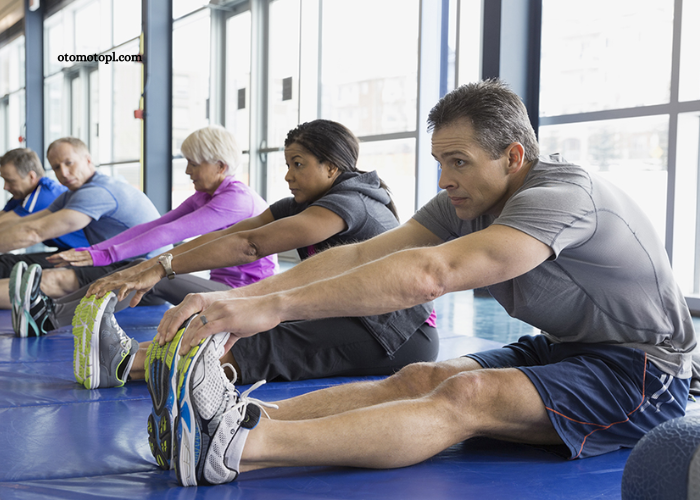In an era where the pursuit of longevity and a high quality of life is paramount, we often turn to various lifestyle choices to achieve these goals. One of the most influential factors in determining how long we live and the quality of life we experience is our level of fitness. The connection between fitness and longevity has been a topic of interest for researchers and health enthusiasts alike. In this comprehensive 2,000-word article, we will explore the science behind longevity, how fitness plays a pivotal role, and practical ways to improve both our lifespan and quality of life through physical activity and a healthy lifestyle.
The Science of Longevity
Longevity is not just about living a long life; it’s about living a long, healthy, and fulfilling life. In essence, it’s the ability to maintain a high quality of life as we age. Science has shown that genetics only play a small part in determining how long we live – the rest is largely influenced by our lifestyle choices.
- Telomeres and Aging Telomeres are the protective caps at the end of our chromosomes. They tend to shorten as we age, leading to cellular deterioration and an increased risk of diseases. However, research has shown that maintaining an active lifestyle, along with a healthy diet, can help slow down this shortening process. Exercise has the remarkable ability to protect telomeres, thereby potentially increasing our lifespan.
- Inflammation and Disease Chronic inflammation is a major contributor to various age-related diseases, such as cardiovascular disease, diabetes, and Alzheimer’s disease. Regular physical activity has been shown to reduce chronic inflammation in the body, making it a powerful tool in preventing these conditions.
- Brain Health Aging often brings cognitive decline and an increased risk of neurodegenerative diseases like dementia. Exercise can boost brain health by promoting the release of neuroprotective chemicals and improving cognitive functions. It also increases the production of new neurons, fostering brain plasticity and resilience.
Fitness and Lifespan
Now that we’ve explored the science behind longevity, let’s delve into how fitness directly impacts our lifespan.
- Cardiovascular Health A robust cardiovascular system is essential for longevity. Regular exercise, especially aerobic activities like running, swimming, and cycling, helps maintain a healthy heart. It lowers the risk of heart diseases, stroke, and high blood pressure. Studies have consistently shown that individuals who engage in regular cardiovascular exercise tend to live longer.
- Weight Management Obesity is a significant factor in reducing lifespan and increasing the risk of chronic diseases. Fitness and a balanced diet are essential for weight management. Engaging in physical activity helps burn calories, build muscle, and improve metabolic health, leading to a healthier weight and, subsequently, a longer life.
- Strength and Muscle Mass Maintaining muscle mass is crucial for longevity. Sarcopenia, the age-related loss of muscle mass, can lead to frailty and a decline in functional independence. Strength training exercises are vital in counteracting this process, as they help preserve and even increase muscle mass. This, in turn, contributes to a longer, healthier life.
- Immune Function A strong immune system is essential for protecting against diseases and infections. Regular exercise helps boost the immune system by increasing the production of antibodies and enhancing the function of immune cells. This not only helps you stay healthier but can also extend your lifespan.
Quality of Life and Fitness
While lifespan is an important metric, quality of life is equally significant. Fitness plays a pivotal role in ensuring that as we age, we continue to enjoy a high quality of life.
- Mobility and Independence Physical fitness is closely tied to mobility and independence. Strong muscles and bones, coupled with good balance and flexibility, enable older adults to maintain an active lifestyle. This independence leads to a better quality of life and a sense of self-sufficiency.
- Mental Health Mental health is an integral component of quality of life. Regular physical activity has been shown to alleviate symptoms of anxiety and depression, reduce stress, and boost overall well-being. A sharp, positive mind contributesto a higher quality of life.
- Social Interaction Participating in group fitness activities and sports can enhance social interaction, reducing feelings of loneliness and isolation. A vibrant social life is a key element of quality of life, particularly in our later years.
- Enhanced Energy and Vitality Exercise not only increases physical energy but also enhances overall vitality. Those who are physically active report having more energy and enthusiasm for daily activities, contributing to a higher quality of life.
Practical Steps to Improve Longevity and Quality of Life
To improve your longevity and quality of life through fitness, consider these practical steps:
- Start with a Physical Activity Plan Consult with a healthcare provider or a fitness expert to create a personalized exercise plan that suits your age, fitness level, and goals. It’s important to find activities you enjoy to make it a sustainable lifestyle choice.
- Prioritize Cardiovascular Exercise Incorporate regular aerobic exercises like walking, jogging, cycling, or swimming into your routine. Aim for at least 150 minutes of moderate-intensity exercise per week.
- Include Strength Training Integrate strength training exercises to maintain and build muscle mass. Aim for two to three days of strength training per week, targeting major muscle groups.
- Maintain a Balanced Diet Diet plays a crucial role in overall health. Consume a balanced diet rich in fruits, vegetables, lean proteins, and whole grains. Limit processed foods, sugar, and saturated fats.
- Get Sufficient Rest Adequate sleep is essential for recovery and overall well-being. Aim for 7-9 hours of quality sleep each night.
- Manage Stress Practice stress management techniques like meditation, yoga, or deep breathing exercises to reduce the negative impact of chronic stress on your health.
- Regular Health Check-ups Schedule regular check-ups with your healthcare provider to monitor your health and address any issues promptly.
- Stay Socially Active Engage in social activities and maintain relationships with friends and family. Social connections are vital for mental and emotional well-being.
Conclusion
The science of longevity reveals that fitness is a key determinant of both lifespan and the quality of life we experience as we age. By understanding the impact of fitness on our cellular health, inflammation, brain function, and various physiological systems, we can make informed lifestyle choices to promote a longer, healthier life. Embracing physical activity, maintaining a healthy diet, and managing stress are among the practical steps that can significantly enhance both our lifespan and our quality of life. In the pursuit of longevity, remember that it’s not just about adding years to your life but also adding life to your years.





you have an ideal blog right here! would you like to make some invite posts on my weblog?